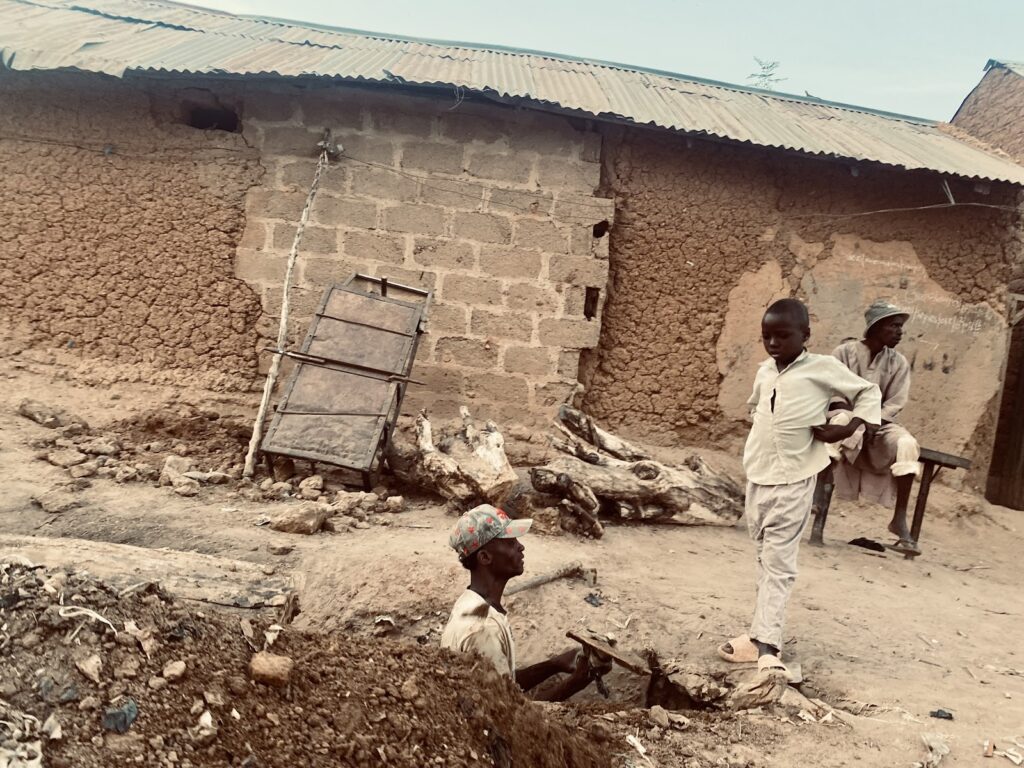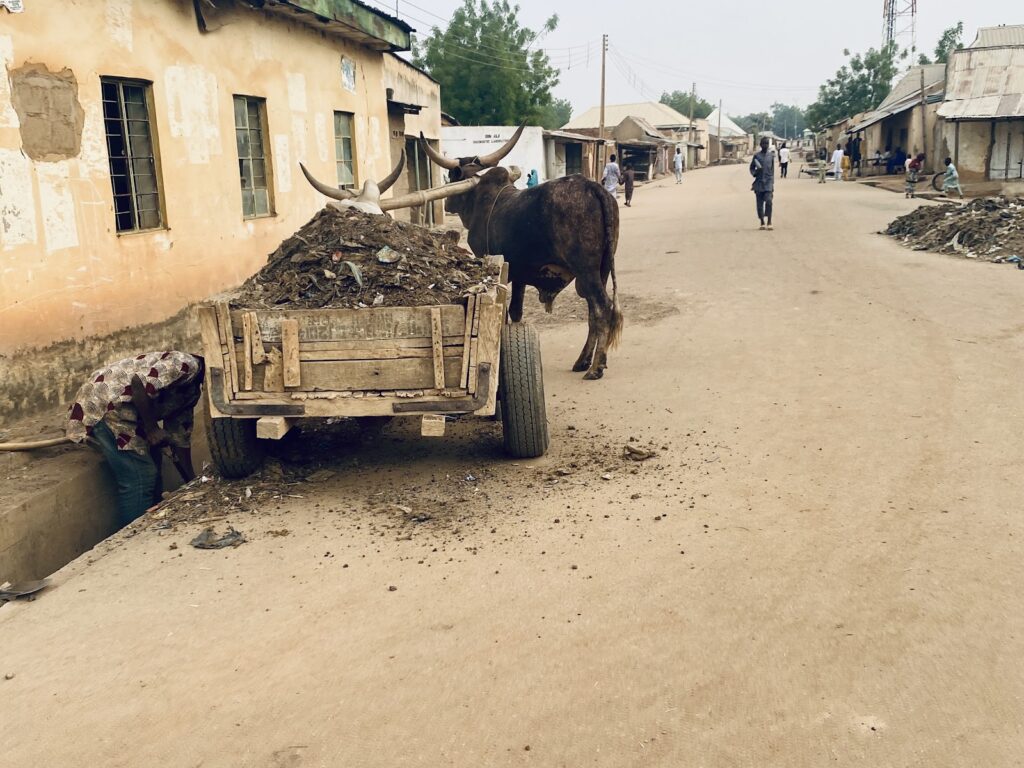This Community Transforms Its Organic Wastes Into Fertilisers, But It’s Not Enough
Imagine a place where waste isn't a burden but a valuable resource. In one community in North East Nigeria, residents have devised an ingenious waste management system, transforming everything from household discards to fallen leaves into fertilisers.
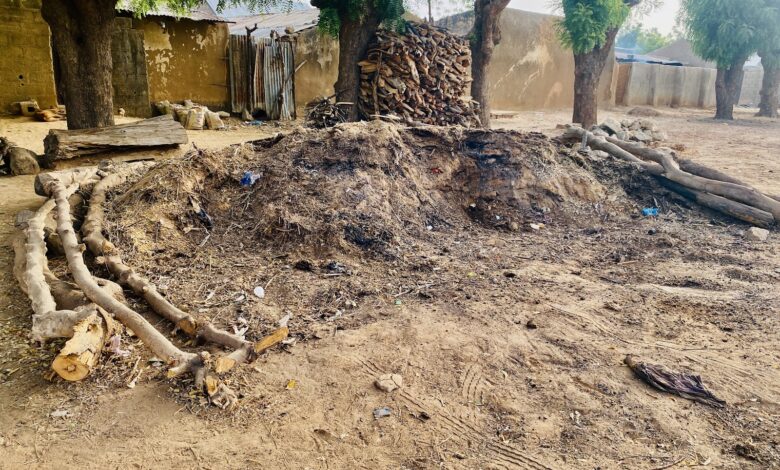
In Dambam, the concept of dumpsites is unheard of. Instead, waste is seen as a treasure. Farming families gather their waste within their homes throughout the year. They collect and recycle it by decomposing and turning it into manure. Even households not engaged in agriculture give their organic waste to those who farm, creating a collective effort that sees waste meticulously gathered, dried, and either burnt or left to decompose, depending on its composition. Plastic and metallic waste are sold for recycling.
Fallen leaves, often considered mere litter in more urbanised settings, are a treasure in Dambam, a community in Nigeria’s Bauchi, a northeastern state. They’re swept up with care, burnt to ash (known as biochar), and transported to the fields. And the result? Crops that thrive, nurtured by this recycled bounty.
“People compete to sweep fallen leaves from under trees so that they will turn them into manure. The streets are cleaned for free,” said Mohammad Aliyu, a local farmer.
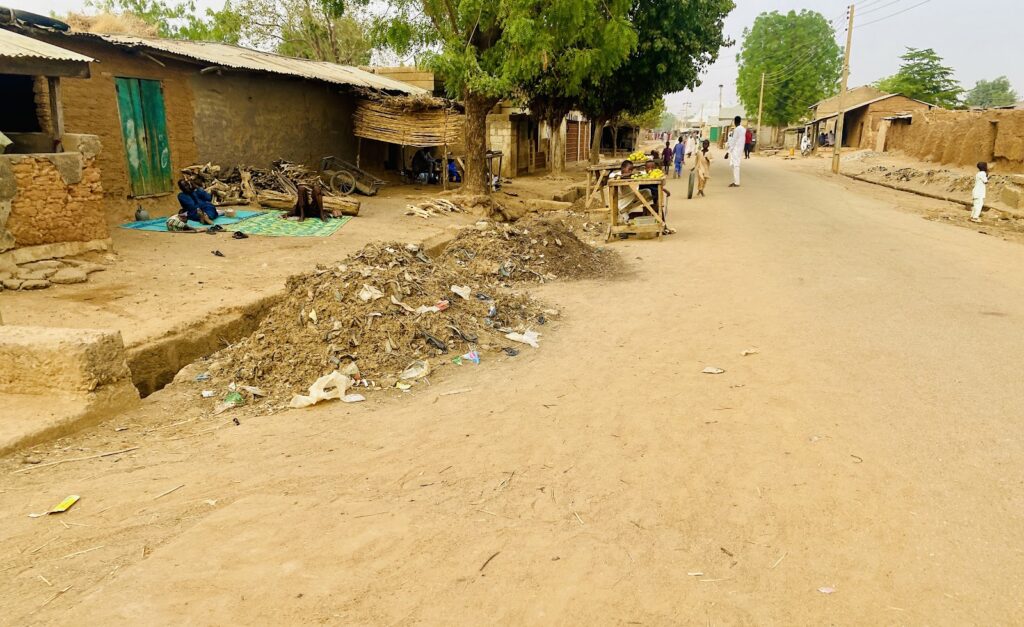
This method of waste management is also a source of income for many residents. By creating compost and manure, people sell to other farmers.
“Turning waste into fertiliser not only helps our crops but also provides us with an additional source of income,” said Mamman Musa, a local entrepreneur. “We sell the compost to farmers, and it has become a valuable part of our economy.”
Hamza Ilu, a farmer and father of four, manages his farm and supports his family during the wet season by selling compost. “Right after the planting season ends, my family and I start gathering and decomposing manure to prepare for the next season. This year, a cart of compost costs ₦8,000 ($5). I sold compost worth ₦100,000 ($63) and also kept some for my farm,” said Ilu.
However, despite their ingenuity, Dambam faces a significant challenge of deforestation. The relentless cutting down of trees has stretched the land’s fertility thin. Yahaya Lawai, a farmer, explained, “The soil is losing its ability to sustain crops. We desperately need solutions.”
“I can’t afford inorganic fertiliser, a bag costs over ₦50,000 ($31), which wouldn’t be enough for my farm. With that same amount, I could get enough compost to cover my entire farm.”
Fertiliser prices spiked in 2022, and Nigeria’s alarming inflation, exacerbated by the removal of the fuel subsidy and the devaluation of the currency, has further worsened the situation. With fertiliser prices increasing by as much as 40 per cent, many farmers lament that they have become unaffordable.
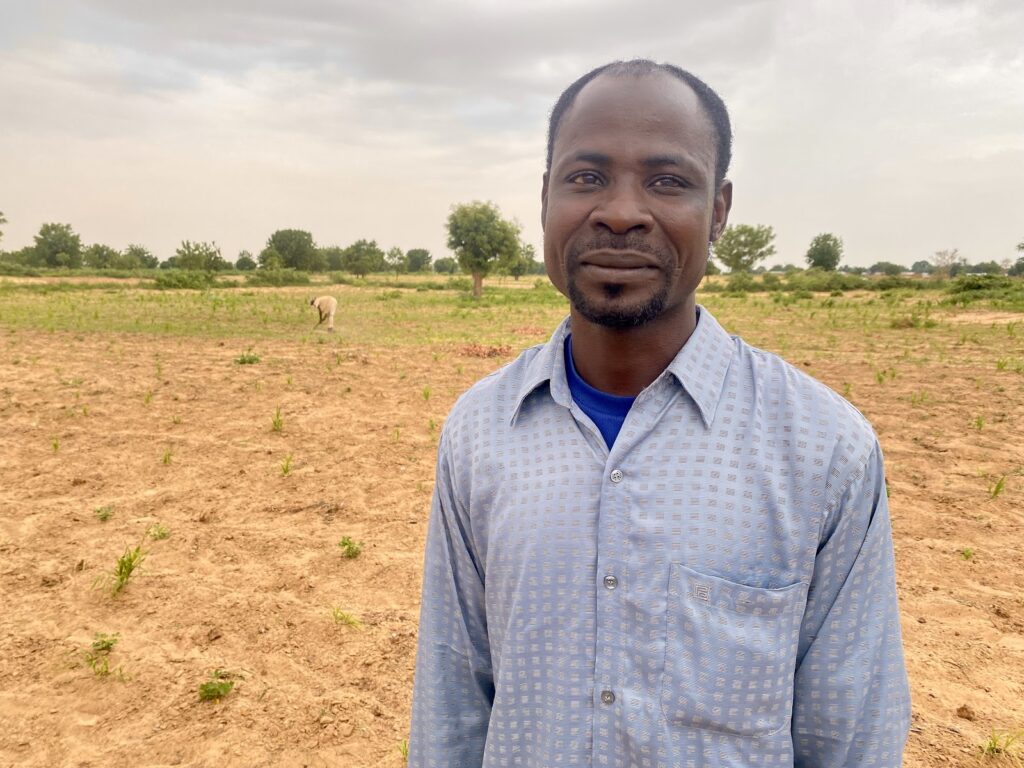
Dambam has even more worries, one being deforestation.
In 2023, Nigeria lost 81.2 thousand hectares of natural forest, producing 54.6 megatonnes (Mt) of CO₂ emissions, according to Global Forest Watch (GFW), an online platform that tracks forest cover loss worldwide using satellite data. Between July 9 and July 16, 2024, GFW noted that there were 1,058 deforestation alerts in the country, covering 13 hectares.
“Restoring soil fertility in Dambam will require a comprehensive strategy to tackle soil degradation, enhance nutrient availability, and promote sustainable agricultural practices through afforestation and reforestation efforts,” said agriculturalist Mohammad Saddique.
“Planting trees and shrubs to reduce soil erosion and improve soil structure are crucial components of this strategy. Cover cropping, which involves growing crops like legumes during off-seasons, can protect the soil from erosion and add essential organic matter, further improving soil fertility.”
Biochar, a charcoal-like substance created by burning organic waste in a limited-oxygen environment, is considered “one of the best organic fertilisers due to its stability and ability to retain nutrients that reduce leaching”. Composted waste is another viable alternative to expensive fertilisers and promotes healthy soil.
These products are particularly important for maintaining soil fertility, even after deforestation. Trees play a vital role, but practices like biochar and compost application can help mitigate some of the damage.
In Dambam, for instance, farmers understand the importance of healthy soil. During the rainy season, clogged drainage causes flooding in many communities. However, the farmers take advantage of the silt in the drainage during the rainy season. By clearing the waterways and using the nutrient-rich dirt that has accumulated, they address drainage issues while also acquiring valuable natural fertiliser for their crops.
But they still face challenges. Many farmers complain that poor yields persist despite using locally sourced manure. The land is overused, and the reckless exploitation of resources, such as cutting down trees, has negatively impacted soil richness.
“Burning waste and using the resultant ash as a fertiliser in agricultural lands can have both positive and negative consequences. The impact largely depends on the type of waste burned, the burning process, and the characteristics of the soil and crops,” Saddique observed.
Burning dirt and leaves to produce biochar can enhance soil fertility through improved structure, nutrient retention, microbial activity, and pH regulation. However, it should be done thoughtfully, considering the specific soil needs and the characteristics of the biochar being applied.
“Biochar improves soil fertility by increasing the porosity of the soil, which enhances retention and aeration—particularly beneficial to the sandy soil of Dambam. It reduces leaching and also serves as a habitat for microbes, providing beneficial soil microorganisms,” Saddique explained.
However, he stated that adding too much can lead to nutrient imbalance.
“Initial soil conditions should be considered because biochar is more beneficial in degraded or poor soil. High temperatures during burning can kill weeds, pathogens, and pests present in the waste material. Adopting sustainable agricultural practices such as crop rotation and diversification will improve soil health and reduce dependency on a single crop.”
Support Our Journalism
There are millions of ordinary people affected by conflict in Africa whose stories are missing in the mainstream media. HumAngle is determined to tell those challenging and under-reported stories, hoping that the people impacted by these conflicts will find the safety and security they deserve.
To ensure that we continue to provide public service coverage, we have a small favour to ask you. We want you to be part of our journalistic endeavour by contributing a token to us.
Your donation will further promote a robust, free, and independent media.
Donate HereStay Closer To The Stories That Matter

